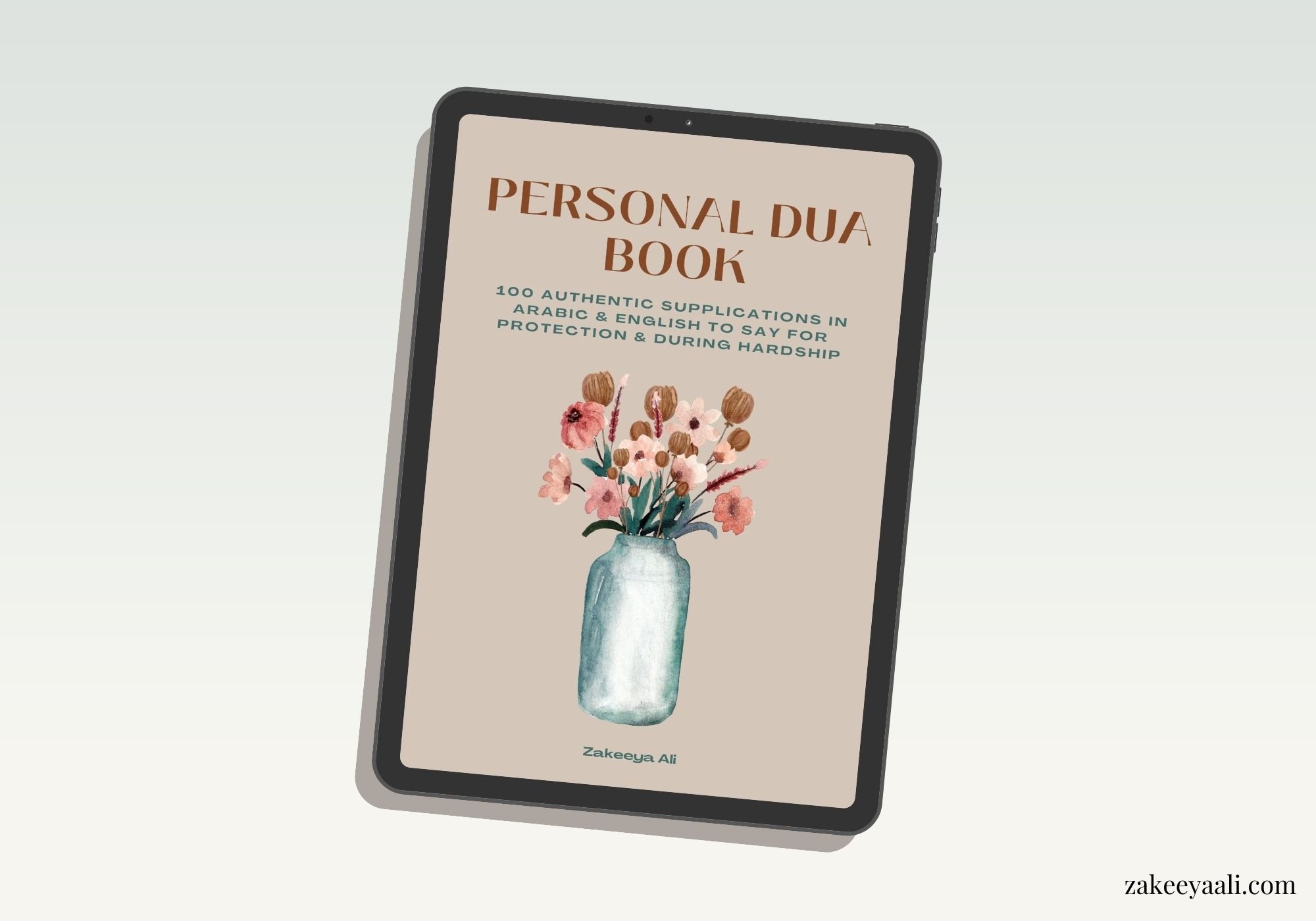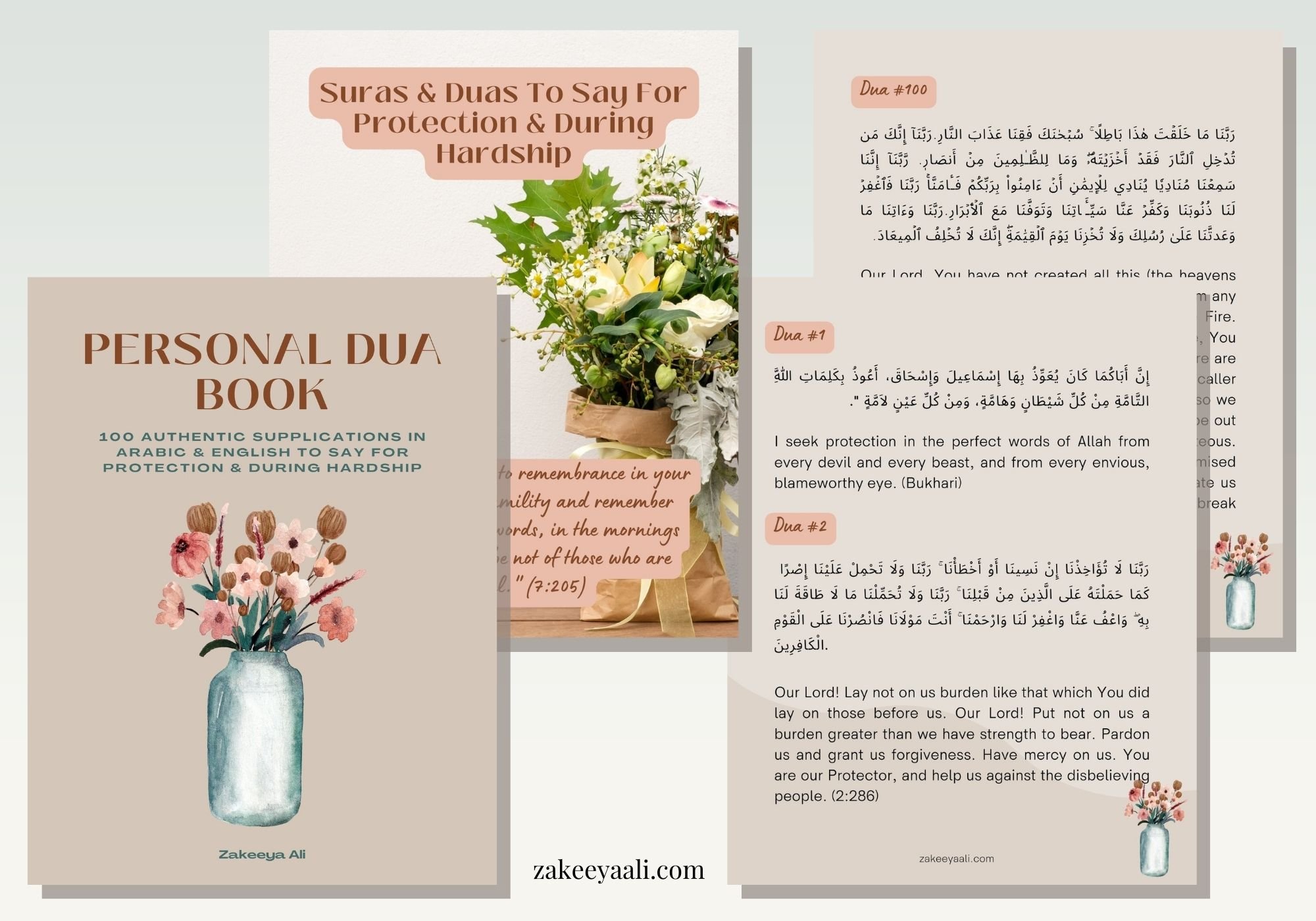Learning Sacred Knowledge Is a Necessity For a Muslim
Studying sacred knowledge in Islam is obligatory for every Muslim who is sane and post-pubescent. This knowledge is known as obligatory personal knowledge, called fard ’ayn. Many of us have not placed importance on learning our fard ‘ayn, yet the scholars mention that it is more detrimental to have little knowledge of religion than no knowledge of religion.
This is due to the fact that if when we know some facets of our deen, and we have not studied it in-depth, we can fall into the sin of making haram, halal and halal, haram from little knowledge and this is dangerous territory. Allah SWT says,
“But say not – for any false thing that your tongues may put forth,- “This is lawful, and this is forbidden,” so as to ascribe false things to Allah. For those who ascribe false things to Allah, will never prosper”. - Quran, 16:116
This is why learned scholars and the Imams of the four schools of law, were very reluctant to render something prohibited without strong irrefutable evidence. They used to say things like, “I do not like so and so a thing”, or “I would discourage so and so a thing”, without prohibiting it outright. They feared rendering something prohibited after Allah has made things upon the earth permissible.
In Islam, knowing the fard ‘ayn is incumbent on us and we will be answerable for not taking the time to learn it. We cannot use ignorance as a valid excuse when we are questioned about the facets of practicing our religion if we came up short. A valid excuse would only be considered if there is no possibility for learning due to factors like being a new Muslim, mental and physical difficulty, living far from scholars or institutes that teach this sacred knowledge, etc. However, nowadays given our access to online scholars and multiple course offerings, learning about our deen is way more possible.
The point of this topic is not to cause a sense of distress or despair for you as a mom, but rather to raise awareness of gaining knowledge to change and turn our situation around for the better. As the first and primary teacher of our children, mothers should study their fard ’ayn extensively, so they can teach their children the proper way as well - and no, you shouldn’t leave teaching your children their fard ’ayn to a madrassah or Sunday school.
Just like anything you teach your young children before they attend school - like teaching them their ABC’s, to read, or to count, etc., teaching them their fard ’ayn should be regarded as a priority. Since we as Muslims, need to know our fard ’ayn as well, this matter will not be difficult to teach to our children. We must take this matter seriously or our children will have a lax attitude towards their deen and their beliefs. Here are simple ways to rectify this:
1. Assess Your Knowledge
Learn what is obligatory for you to know. Learn what is obligatory for you to teach your child. If you do not confidently know detailed information about your fards according to your madhab, to any of the following - you may not know your fard ‘ayn:
The invalidates of wudhu
The integrals of wudhu
The conditions of salah
The integrals of salah
The Sunnah of salah
Conditions that enable you to combine prayers
The details of what breaks fasting
Legal excuses for not fasting and for whom expiation is due
The minimum and maximum length of menstruation
The nisab of zakat
The rights of your spouse
The signs of puberty
2. Find A Teacher
After honestly assessing yourself and you realize that you don’t know your fard ‘ayn, the next step is to seek out qualified, knowledgeable, teachers in your area that are learned in your madhab. If this is not possible for whatever reason, then opt for online studies, offered free or affordably at a place like:
Stay focused and don’t be distracted by the vast variety of exciting courses available. Studying tafsir, seerah and the like are Sunnah. You will most definitely receive a reward for studying them, but it is not sinful if you don’t. You need to explore the fiqh of your worship first before considering other studies.
3. Begin Your Studying
Set time aside even if it is just 30-60 mins a day, or a few hours per week to learn this sacred knowledge. Learning your fard ‘ayn does not take long, yet this knowledge will be a guide for you in your daily life and in the life of your children. Furthermore, the reward is eternal!
The nice aspect of online learning is that you can learn your sacred knowledge easily from home, it’s flexible, less time-consuming, and more affordable.
4. Practice What You Learn
We know from Hadith that there will be three people who will be the first to enter the hellfire on the Day of Judgement. One of them is the insincere scholar. Knowledge is not in itself beneficial, but it is the sincere practice of that knowledge that is beneficial. Your knowledge will testify for you or against you on the Day of Judgement, depending on what you did with it. Abu Huraira reported: The Messenger of Allah PBUH said,
“Verily, the first people to be judged on the Day of Resurrection will be a man who was martyred. He will be brought, the blessings of Allah will be made known and he will acknowledge them. Allah will say: What did you do about them? The man will say: I fought in your cause until I was martyred. Allah will say: You have lied, for you fought only that it would be said you were brave, and thus it was said. Then, Allah will order him to be dragged upon his face until he is cast into Hellfire. Another man studied religious knowledge, taught others, and recited the Quran. He will be brought, the blessings of Allah will be made known and he will acknowledge them. Allah will say: What did you do about them? The man will say: I learned religious knowledge, taught others, and I recited the Quran for your sake. Allah will say: You have lied, for you studied only that it would be said you are a scholar and you recited the Quran only that it would be said you are a reciter, and thus it was said. Then, Allah will order him to be dragged upon his face until he is cast into Hellfire. Another man was given an abundance of blessings from Allah and every kind of wealth. He will be brought, the blessings of Allah will be made known and he will acknowledge them. Allah will say: What did you do about them? The man will say: I did not leave any good cause beloved to you but that I spent on it for your sake. Allah will say: You have lied, for you spent only that it would be said you are generous, and thus it was said. Then, Allah will order him to be dragged upon his face until he is cast into Hellfire.” - Sahih Muslim 1905
5. Teach It To Your Children
In traditional Islamic societies, children are taught their fard ayn when they are still young. They carry it throughout their life which prevents them from falling into despair and doubt. They also have the additional benefit of learning this knowledge from their elders. Sadly, in modern societies this is much less prevalent and as moms, we have the full task of instilling this sacred knowledge in our kids.
We should be aware that it is obligatory to teach our children the knowledge they need to know of their religion in facets such as purification, prayer, fasting, and what is clearly halal and haram. While a child is not accountable before puberty for knowing or practicing this knowledge, the parents are responsible for teaching it. The mistakes made by a child due to the negligence of this teaching will be on the parents account as well as their grown child.
6. Review What You Learn
Be sure to review what you have learned at least once every six months. This ensures that you do not forget or fail to implement any part of your attained knowledge. Learning sacred knowledge is a continual endeavor and must be instilled as part of one’s life.
7. Feel The Peace
You will feel a sense of peace knowing that you have fulfilled your obligation to Allah SWT, met the rights of your children, and responded to the verse:
"O you who have believed, protect yourselves and your families from a Fire whose fuel is people and stones, over which are [appointed] angels, harsh and severe; they do not disobey Allah in what He commands them but do what they are commanded.’ (Qur’an 66:6)
You will also find that:
You do not have doubt and confusion.
You know exactly how to perform your worship in the way Allah SWT has ordained.
You will not be confused by people telling you different or when you read contradictory information.
You won’t have to worry about details like whether something broke your fast, or whether you can combine a prayer in a given situation, etc.
When you learn your sacred knowledge, you will have confidence and certainty in your worship. This will allow you to focus on perfecting and expanding your knowledge of worship in every facet, which will be beneficial in this life and the next, inshallah!
Salam, I’m Zakeeya!
I believe that making our homes a safe haven for our families, as well as being a wife and mother, brings us great blessings, contentment, and benefits to society as a whole. Since 2011, I've been dedicated to assisting Muslimas in finding tranquility in their roles, taking better care of themselves, and achieving inner peace. Our journey in this world is not an easy one, but I pray the tools and guidance I offer will help you face life's challenges with more gratitude and mindfulness. Join me as I share wifehood, motherhood, homemaking, and lifestyle solutions that make life more fulfilling for you as a woman! Read more about me here.
Do You Need Support as a Sister?
If you are struggling in your life and need professional support for personal development, you can book a one-on-one mentoring session with me to get tailored advice.
Do You Want to Instill Your Daily Dose of Dua?
Order my handy dua ebooks, which are available in an Arabic/English or English only version, and contain 100 authentic duas to say for protection and during hardship.






